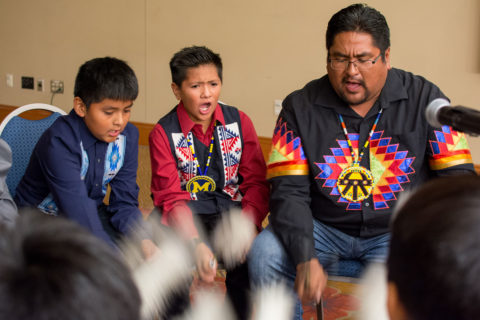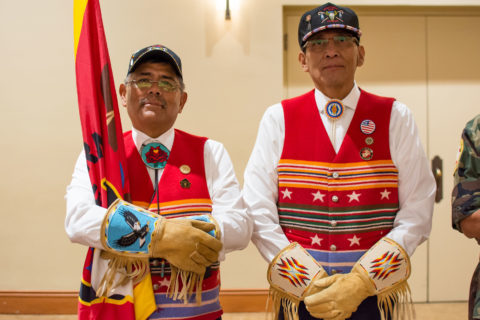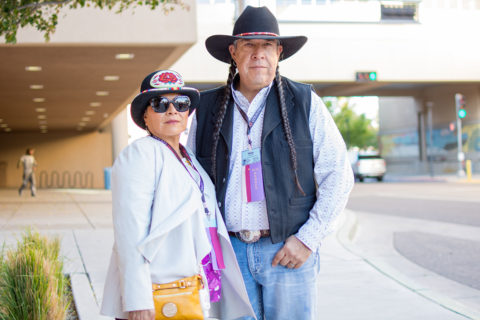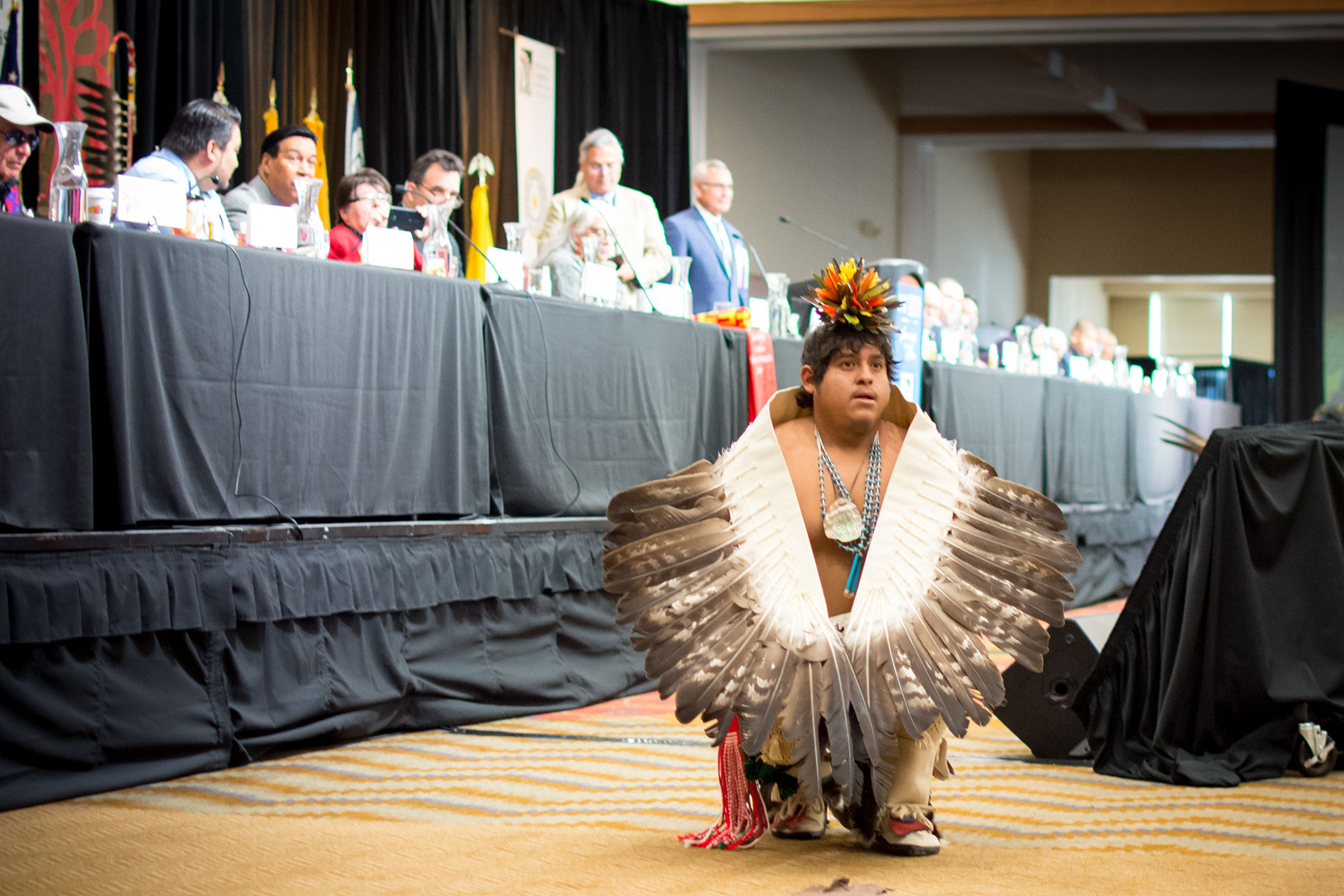National Congress convenes in Albuquerque
The National Congress of American Indians (NCAI) kicked off the 76th annual convention and marketplace this year in Albuquerque, Oct. 20— Oct. 25, returning to the Land of Enchantment, the convention was attended by tribal leaders, advocates and members. NCAI is one of the largest and oldest intertribal political organizations of the modern era. Since its founding in 1944 the congress has played a crucial role in giving a voice to tribal entities in political awareness and activism.

Year after year tribal governments gather to participate in the weeklong convention that draws out participants from across Indian Country. The convention is a time for leaders to share their needs and to gain pertinent information. This year’s agenda highlighted the work of the congress’ task forces. There were also general assemblies, training workshops and breakout sessions that covered everything from self-governance to helping victims of crime.
The Southern Ute Veterans Association was one of many others present at the convention. Rudley Weaver and Gordon Hammond carried in the association’s flag during the first general assembly on Monday, Oct. 21 and helped the honor guard post the colors for the event. The veterans were also in attendance of the NCAI subcommittee meeting for Native American Veterans to review and recommend amendments of the Veterans policy. This policy helps the NCAI Veterans Committee understand the concerns of tribal nations and citizens which helps them leave better impacts.

Violence in Indian Country and development were two of the key themes being addressed during the convention. NCAI’s violence against women task force held a work session that allowed different federal agencies to update their partners and was an opportunity for participants to discuss the reauthorization of the Violence Against Women Act (VAWA), as well as other important legislative information and experiences related to Missing and Murdered Indigenous Women (MMIW).
According to the Urban Indian Health Institute there are currently 506 MMIW cases that have been identified in 71 different cities. These case findings are likely an undercount of the MMIW in urban areas and has been identified as a nationwide crisis. Stepping into action, congress has reauthorized the VAWA act to help improve criminal justice and community-based responses to domestic violence, sexual assault and stalking in the United States. VAWA is an effective and cost-efficient act that is saving people’s lives by reducing violence against women.
Across Indian Country, development has presented opportunities for tribes to become less energy dependent and to even participate in the growing markets of energy sectors. Developments in language, renewable energy, housing and sovereignty were all discussed at NCAI this year. At the tribal, state and federal policy levels native nations are taking innovative approaches to revitalizing their languages which will result in language protection and prosperity. The advancements in renewable energy was showcased during the convention and provided tribal leaders with ideas of how to diversify their economics through tribal government-foundation partnerships.
Ute Indian Tribe’s very own, Shaun Chapoose was present at NCAI and was seen campaigning to be the next National Congress of American Indians President. Chapoose was running against Chairman Harold Frazier of the Cheyenne River Sioux, Chairman Marshall Piertie of the Tunica-Biloxi Tribe of Louisiana and President Fawn Sharp of the Quinault Nation. “It is time for us to write the history—we know our rights and Indian Country is standing up,” Chapoose stated. “People everywhere are going to hear our voice.”

On Thursday, Oct. 24 NCAI released the election results and Fawn Sharp became the next president-elect; Sharp is only the third woman elected to this position in NCAI history.

